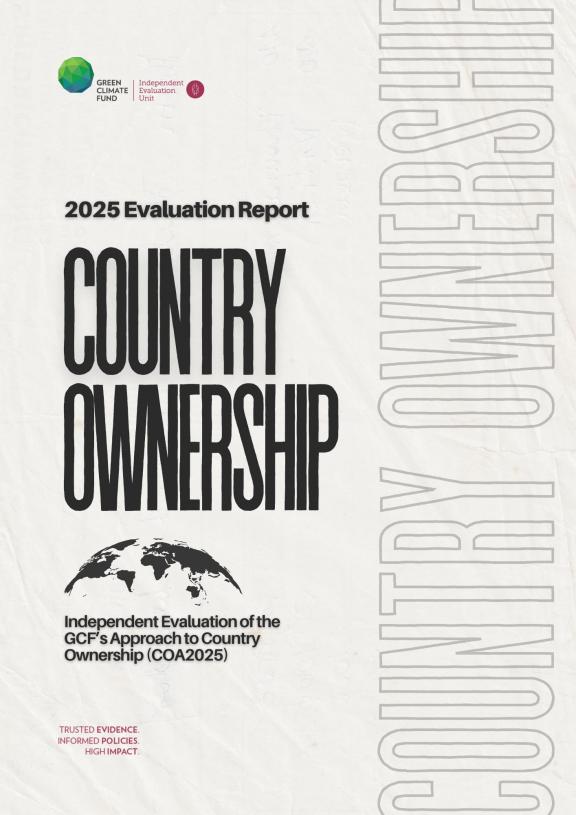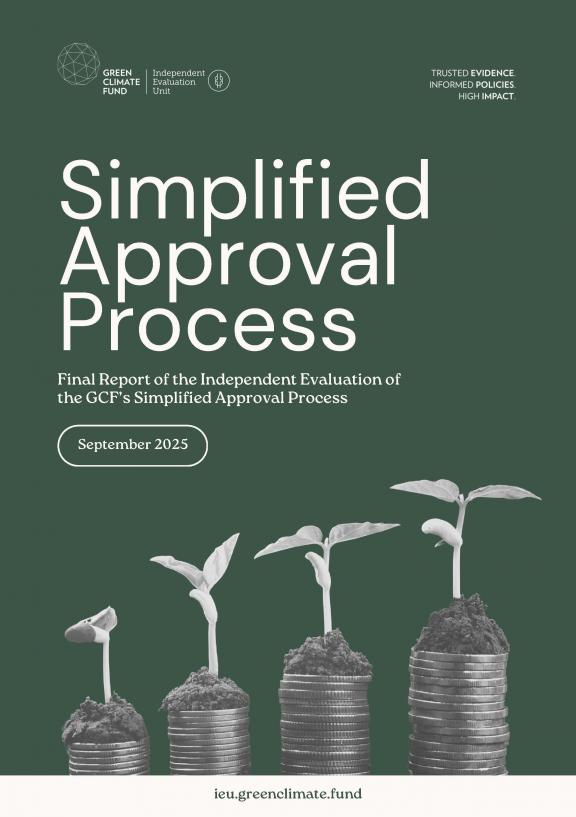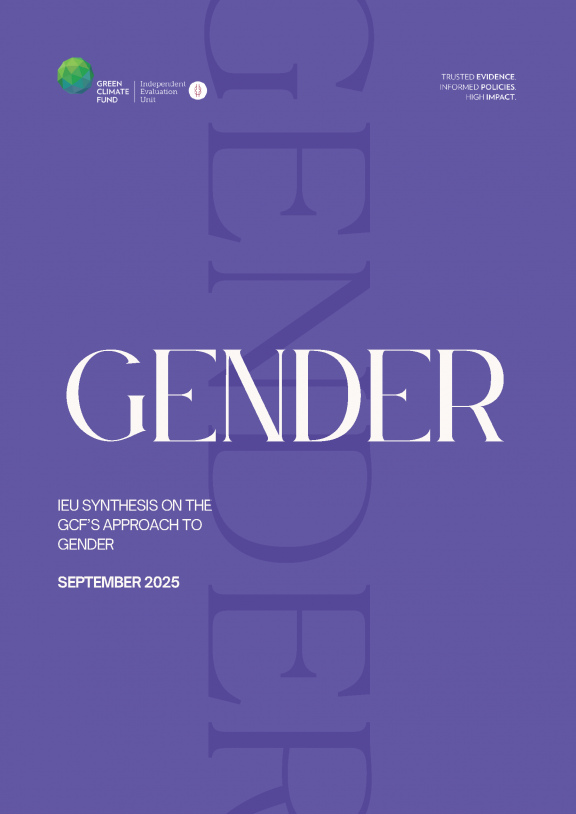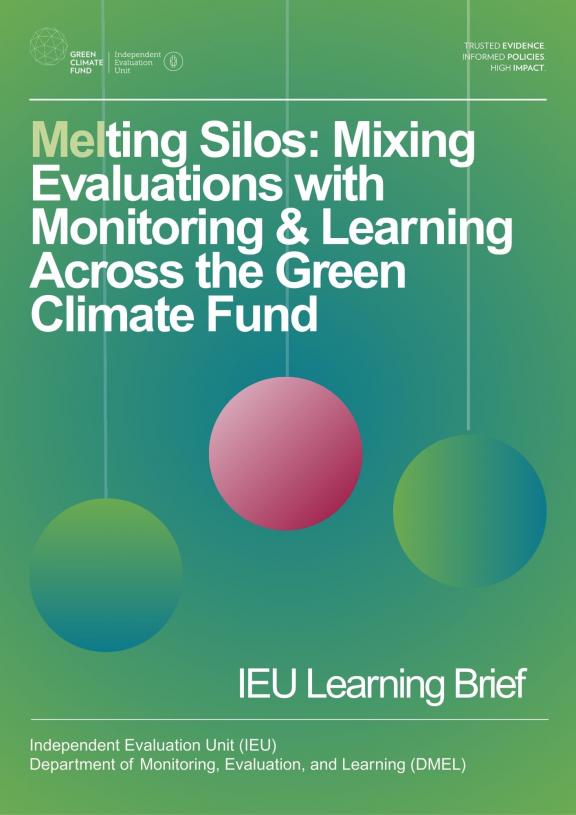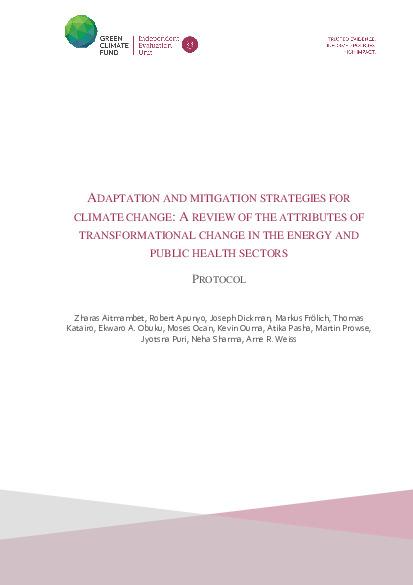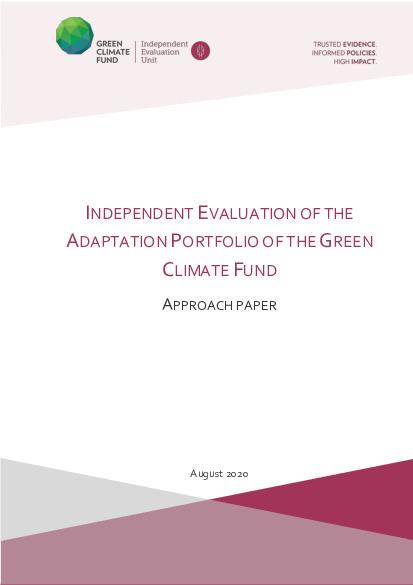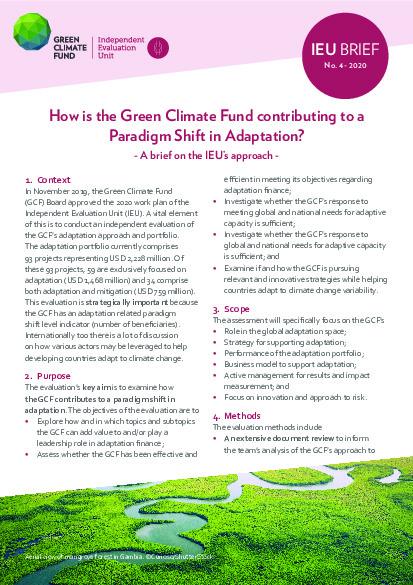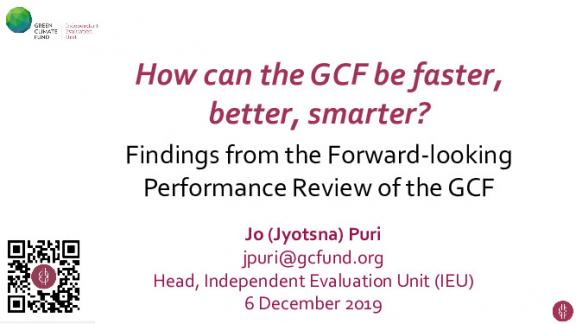IEU publications
To serve the needs of our stakeholders, the IEU issues a variety of publications related to our work, including in the context of evaluations and learning. Keep up with the IEU’s latest publications here.
Featured publications
Independent Evaluation of the GCF's Approach to Country Ownership (COA2025)
This independent evaluation of the Green Climate Fund’s (GCF) approach to country ownership was approved by the GCF Board as part of the 2025 workplan of the Independent Evaluation Unit (IEU) and is submitted in time for its forty-third meeting (B
Independent Evaluation of the GCF’s Simplified Approval Process (SAP2025)
The Green Climate Fund’s Simplified Approval Process (SAP) was created to make climate finance more accessible and responsive, thus enabling smaller, lower-risk projects to address urgent climate needs in vulnerable countries.
Independent Synthesis of the GCF’s Gender Approach
Approved at the fortieth meeting of the GCF Board (B.40), this formative Gender Synthesis consolidates insights from past evaluations, assessments, and studies to inform the forthcoming Independent Evaluation of the GCF’s Gender Approach.
MELting Silos: Mixing Evaluations with Monitoring & Learning Across the Green Climate Fund
This IEU Learning Brief, prepared jointly by the Independent Evaluation Unit (IEU) and the Department of Monitoring, Evaluation, and Learning (DMEL), examines how the Green Climate Fund (GCF) can better align its monitoring, evaluation, and learni
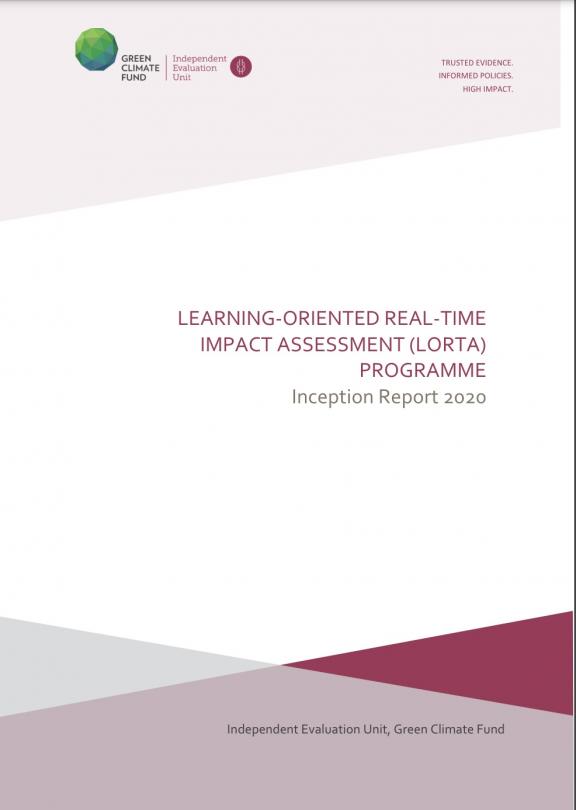
LORTA Inception Report 2020
December 2020
The 2020 inception report for the Learning-Oriented Real-Time Impact Assessment (LORTA) programme by the Independent Evaluation Unit (IEU) of the Green Climate Fund (GCF) outlines the continued efforts to integrate real-time impact evaluations into GCF projects. It details the methodologies used, progress made, and lessons learned from the impact evaluations conducted during this period.
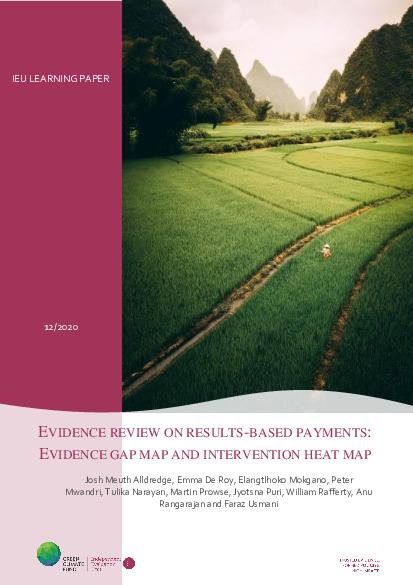
Evidence gap map and intervention heat map: Evidence review on results-based payments
December 2020
The evidence gap map presents a systematic, multisectoral search of publications in the academic and grey literature. The search was restricted to quantitative studies published between 2000 and 2020 that assessed the effectiveness of one or more RBP interventions using experimental, quasiexperimental or non-causal designs. Based on sector-, intervention- and implementation-related characteristics extracted from a sample of 428 studies that met these inclusion/exclusion criteria, we developed...
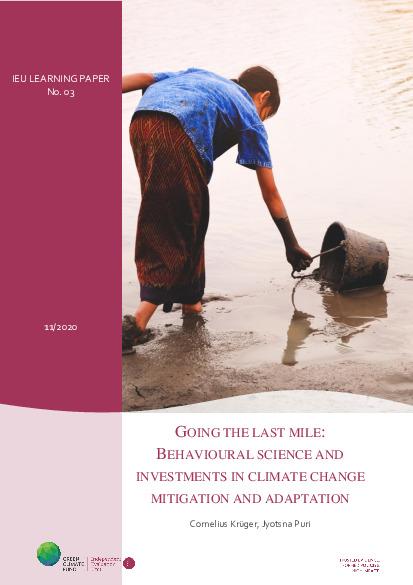
Going the Last Mile: Behavioural Science and Investments in Climate Change Mitigation and Adaptation
November 2020
This paper makes the case for behavioural science analysis and interventions in project design. Current approaches to behaviour change in the GCF portfolio are likely to ignore several psychological barriers. We base our analysis and recommendations on both portfolio-level data as well as case studies of 11 purposively-chosen projects from a random sample of 20 projects in the GCF portfolio. This is a revised and extended version of the paper presented to the Climate2020 online Conference.
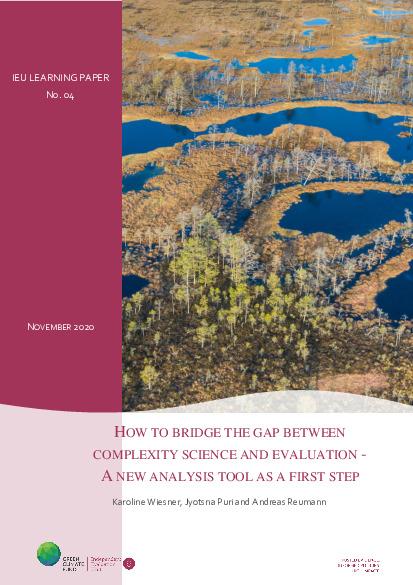
How to bridge the gap between complexity science and evaluation - A new analysis tool as a first step
November 2020
This paper builds a bridge between the science of complexity and climate change adaptation activities conducted in the field. It provides an introduction to complexity science, introduces a diagnostic tool for mapping complex human–climate systems, and concludes with lessons that may be learned for designing, managing and evaluating climate projects.
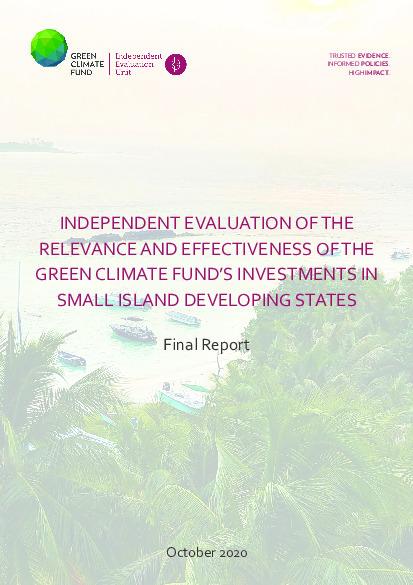
Final report on the Independent Evaluation of the Relevance and Effectiveness of the Green Climate Fund's Investments in the SIDS
October 2020
SIDS are an exceptionally heterogeneous group of countries. But they all have one thing in common: they are highly vulnerable to the effects of climate change. SIDS face numerous climate threats, including rising temperatures, changing precipitation patterns, flooding, drought, reduced availability of fresh water, coral reef decline and sea level rise. SIDS suffer inordinately more from climate change than they contribute to it through greenhouse gas emissions. They have been vocal about...
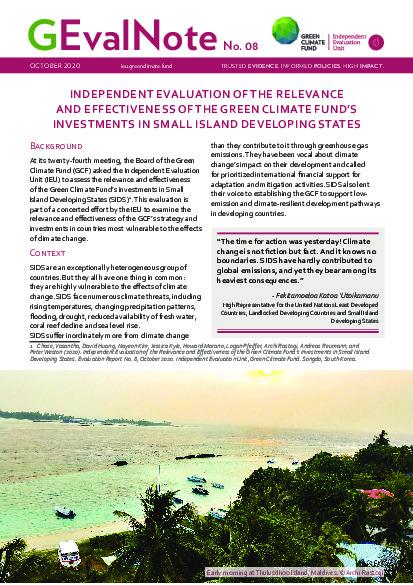
GEvalNote 08
October 2020
Small island developing States (SIDS) face numerous climate threats, such as rising temperatures, changing rainfall patterns, flooding, drought and coral reef decline. Due to rising sea levels many SIDS expect to face food and freshwater insecurity. This 2020 2-page note introduces decision makers to the key points of the IEU’s evaluation of the relevance and effectiveness of the GCF’s investments in SIDS. It describes in clear terms the evaluation’s background, context, conclusions,...
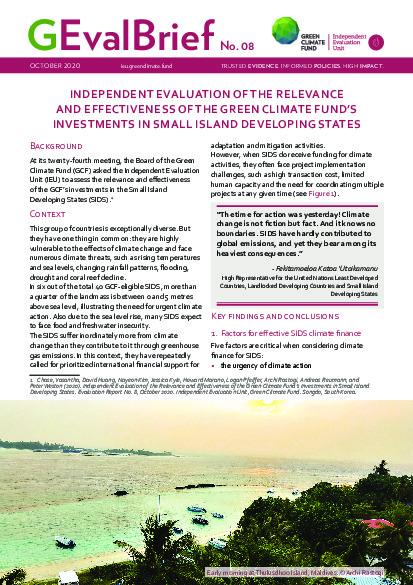
GEvalBrief 08
October 2020
Small island developing states (SIDS) face numerous climate threats, such as rising temperatures, changing rainfall patterns, flooding, drought and coral reef decline. Due to rising sea levels many SIDS expect to face food and freshwater insecurity. This 2020 4-page brief introduces decision makers to the key points in the IEU’s evaluation of the relevance and effectiveness of the GCF’s investments in SIDS. With the effective use of graphs and tables and clear text, it describes the evaluation’...
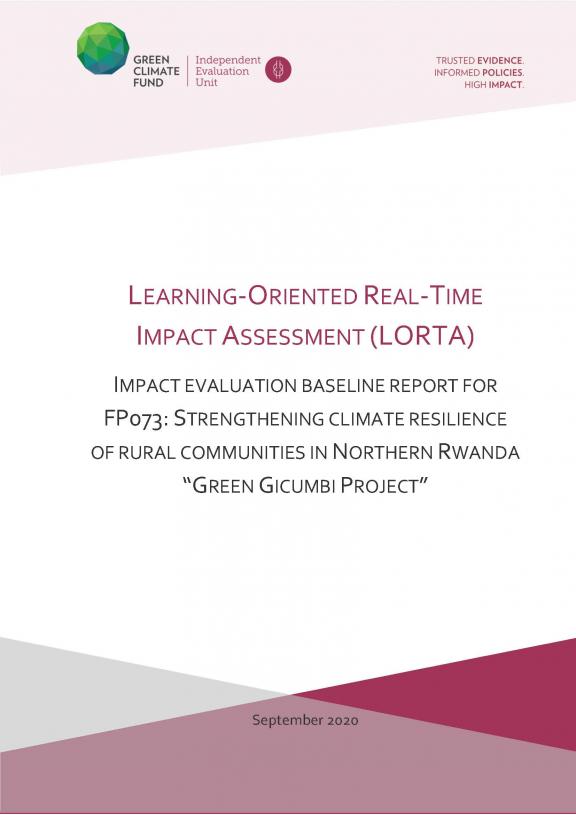
Impact Evaluation Baseline Report for FP073: Strengthening Climate Resilience of Rural Communities in Northern Rwanda "Green Gicumbi Project"
September 2020
This report presents the findings of the baseline survey for strengthening climate resilience of rural communities in Northern Rwanda commonly known as the "Green Gicumbi Project".
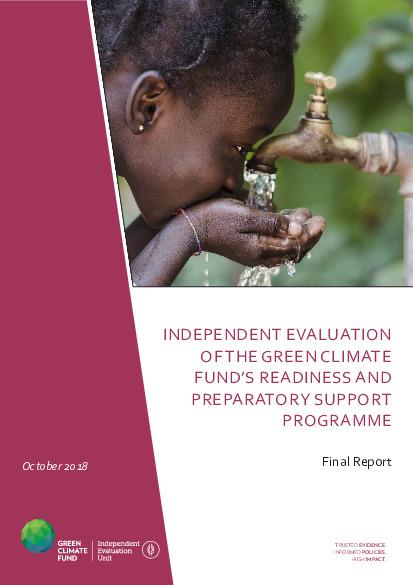
Final report on the independent evaluation of the GCF's Readiness and Preparatory Support Programme (RPSP2019)
August 2020
This page refers to the evaluation undertaken in 2018. For the 2025 evaluation, please visit RPSP2026 linked here. This report presents the findings of the Independent Evaluation of the Readiness and Preparatory Support Programme (RPSP) of the Green Climate Fund (GCF). The RPSP was launched in 2014, less than one year after the GCF officially opened its permanent headquarters in Songdo, Republic of Korea in December 2013. It is a strategic priority of the GCF Board, as stated in decision B.05/...
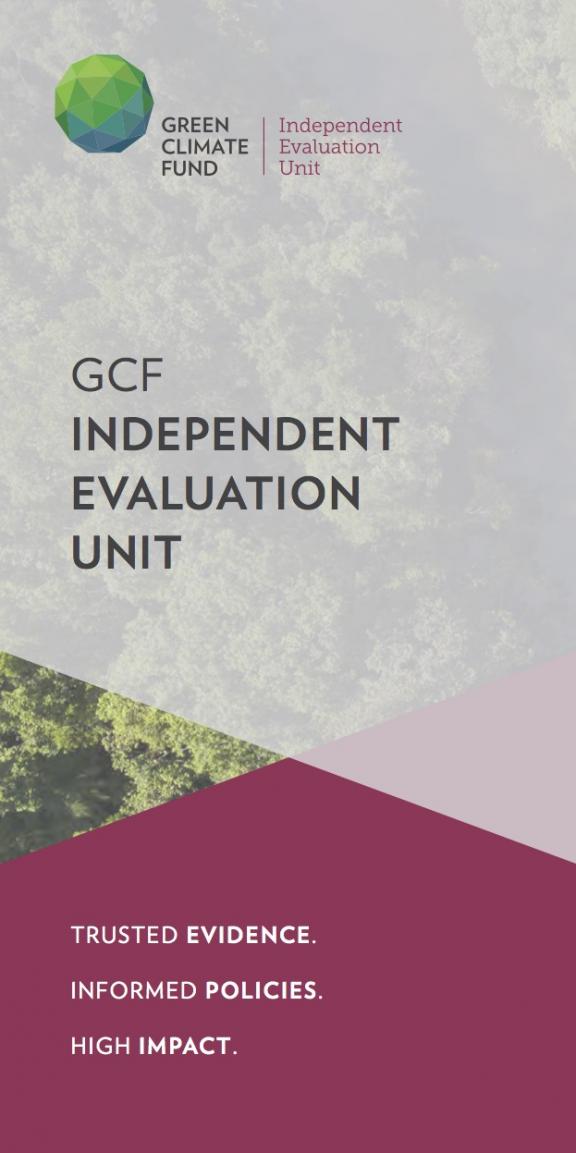
IEU brochure
August 2020
The Independent Evaluation Unit (IEU) ensures GCF is accountable and effective. It conducts independent evaluations of GCF’s activities to guarantee its accountability, and synthesises learnings from these assessments to support GCF’s effectiveness as a learning institution.
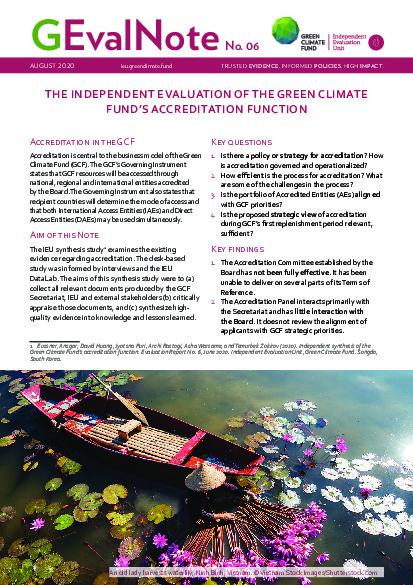
GEvalNote 06
August 2020
In deploying its resources, the GCF works through a wide range of institutions to finance projects and programmes. To access funding, these institutions must fulfil the requirements of an accreditation process. This 2-page note introduces decision makers to the key points in the IEU’s synthesis of the GCF's accreditation function. It describes in clear terms the accreditation function, key questions, key findings and separate recommendations for the Secretariat and the Board.
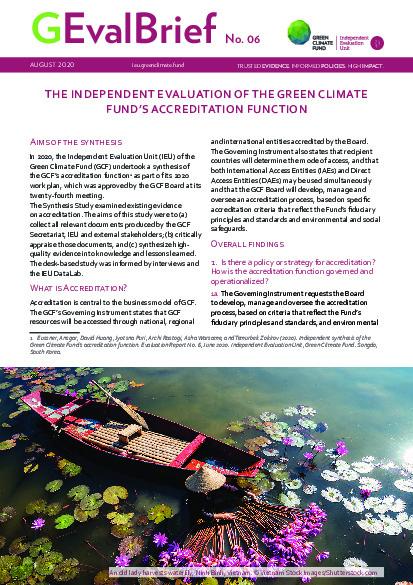
GEvalBrief 06
August 2020
In deploying its resources, the GCF works through a wide range of institutions to finance projects and programmes. To access funding, these institutions must fulfil the requirements of an accreditation process. This 2020 4-page brief introduces decision makers to the key points in the IEU’s synthesis of the GCF's accreditation function. It describes the aims of the synthesis, the accreditation function, overall findings and separate recommendations for the Secretariat and the Board.
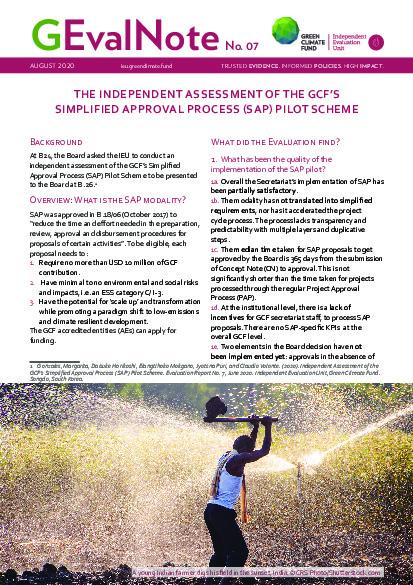
GEvalNote 07
August 2020
Note: This document refers to the evaluation of the GCF's Simplified Approval Process (SAP) undertaken in 2020. For the 2025 evaluation, please visit SAP2025 here. The simplified approval process pilot scheme (SAP) aims to expedite the GCF’s efforts of bringing innovative climate solutions from concept to impact through easier documentation and clearer application guidelines. This 2020 2-page note introduces decision makers to the key points of the IEU’s rapid assessment of the SAP pilot scheme...

GEvalBrief 07: SAP2020
August 2020
Note: This document refers to the evaluation of the GCF's Simplified Approval Process (SAP) undertaken in 2020. For the 2025 evaluation, please visit SAP2025 linked here. The simplified approval process pilot scheme (SAP) aims to expedite the GCF’s efforts of bringing innovative climate solutions from concept to impact through easier documentation and clearer application guidelines. This 2020 4-page brief introduces decision makers to the key points of the IEU’s rapid assessment of the SAP...
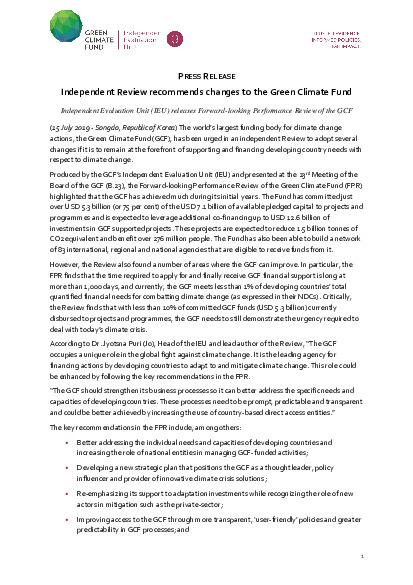
Independent Review recommends changes to the Green Climate Fund
July 2020
The world’s largest funding body for climate change actions, the Green Climate Fund (GCF), has been urged in an independent Review to adopt several changes if it is to remain at the forefront of supporting and financing developing country needs with respect to climate change.
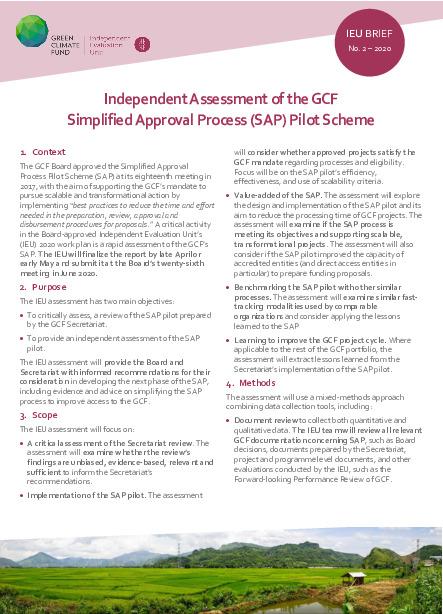
SAP2020: Approach Brief
July 2020
Note: This document refers to the evaluation of the GCF's Simplified Approval Process (SAP) undertaken in 2020. For the 2025 evaluation, please visit SAP2025 linked here. The simplified approval process pilot scheme (SAP) aims to expedite the GCF’s process of bringing innovative climate solutions from concept to impact through easier documentation and clearer application guidelines. This 2020 2-page introductory brief provides a pre-implementation summary of the IEU’s planned assessment of the...
